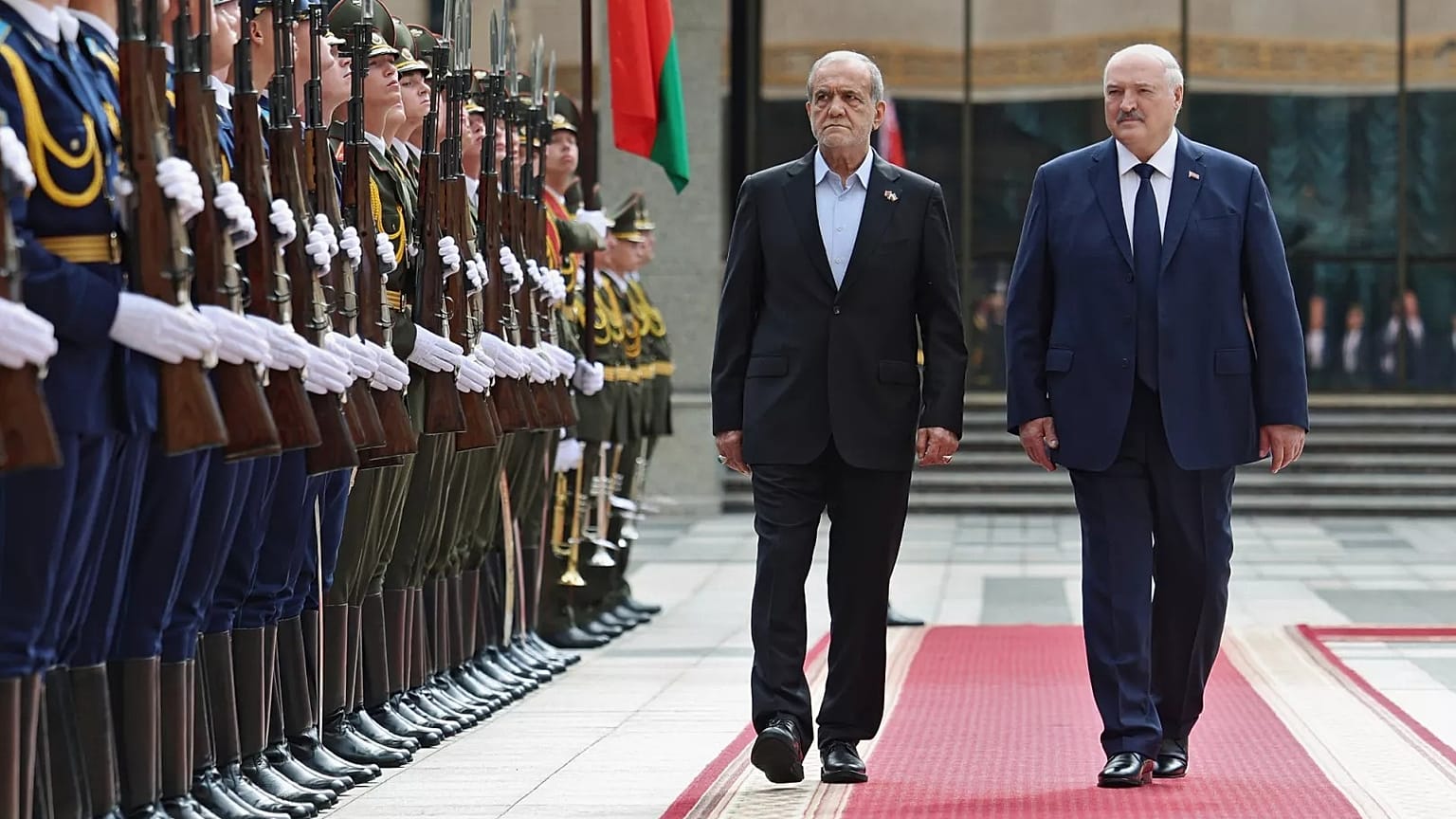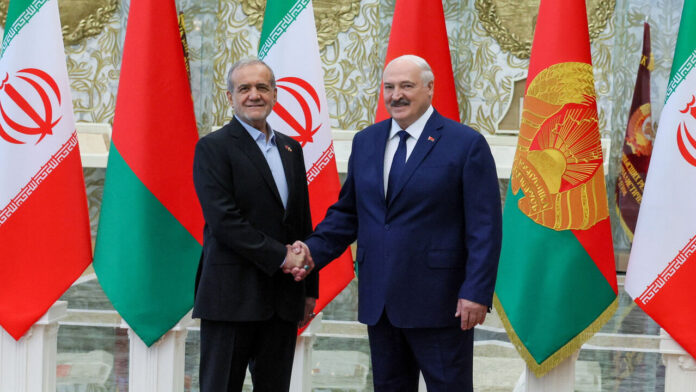Belarus and Iran Expand Relations
Belarus and Iran have agreed to strengthen their cooperation across several areas, including defense and trade. The two countries signed 12 agreements during a meeting in Minsk, where Iranian President Masoud Pezeshkian met Belarusian President Alexander Lukashenko for nearly four hours of talks at the Palace of Independence.
Both leaders made it clear that they want stronger ties in response to Western sanctions. They also signaled their shared support for Russia, which has been central in bringing the two countries closer together.
Military Cooperation Gains Focus

One of the main outcomes of the talks was the promise to expand defense cooperation. According to Belarusian state media Belta, Lukashenko said that Belarus is ready to work with Iran not only in trade and agriculture but also in defense technology. He added that there would be “no secrets” in this cooperation and that the efforts would benefit both countries.
This focus on defense is important because both Belarus and Iran have already helped Russia during its war in Ukraine. Belarus gave Russia access to its territory for the 2022 invasion and agreed to host Russian nuclear weapons. Iran, on the other hand, has supplied Russia with Shahed drones used in the war.
In my view, this agreement shows how isolated countries often find support in one another. By working together, Belarus and Iran are sending a signal that sanctions have not weakened their ability to form strong partnerships. However, this cooperation could further strain their relations with the West and fuel more instability in global politics.
Plan for a Strategic Partnership Treaty

The talks also included discussions on creating a formal strategic partnership treaty, similar to the one Iran signed with Russia earlier this year. Lukashenko described this as a “good outcome” of the talks. If signed, such a treaty would lock in long-term cooperation and underline the closeness between Belarus and Iran.
The idea of a strategic treaty is not just symbolic. It shows that both governments are seeking stable, long-term structures to support one another. This move reflects how countries under pressure from the United States and Europe are working to build alternative political and economic systems.
Agreements Beyond Defense
Beyond military ties, the two presidents oversaw the signing of agreements in areas like tourism, healthcare, pharmaceuticals, investment, and the environment. They also committed to closer cooperation in international organizations such as BRICS, the Shanghai Cooperation Organization, and the Eurasian Economic Union.
Trade between Belarus and Iran is currently around $80 million a year, which Pezeshkian called too low compared to their full potential. He said both countries should aim for “deeper and more stable” foundations for trade. Belarus has expressed strong interest in gaining access to Iran’s maritime trade routes, which would give it better links to global markets.
My Analysis
This cooperation highlights a growing divide in global politics. On one side, Western countries continue to enforce sanctions, aiming to isolate governments in Minsk and Tehran. On the other side, Belarus and Iran are building new partnerships to reduce the impact of those sanctions. While this gives both countries some short-term relief, it also increases global tensions.
The challenge for Belarus and Iran will be turning political promises into real results. Past deals between similar partners have often been limited by economic weakness and pressure from outside powers. If this partnership succeeds, it could change the balance of influence in regions where both countries play a role, including Eastern Europe and the Middle East.
Sources: independent.co.uk

